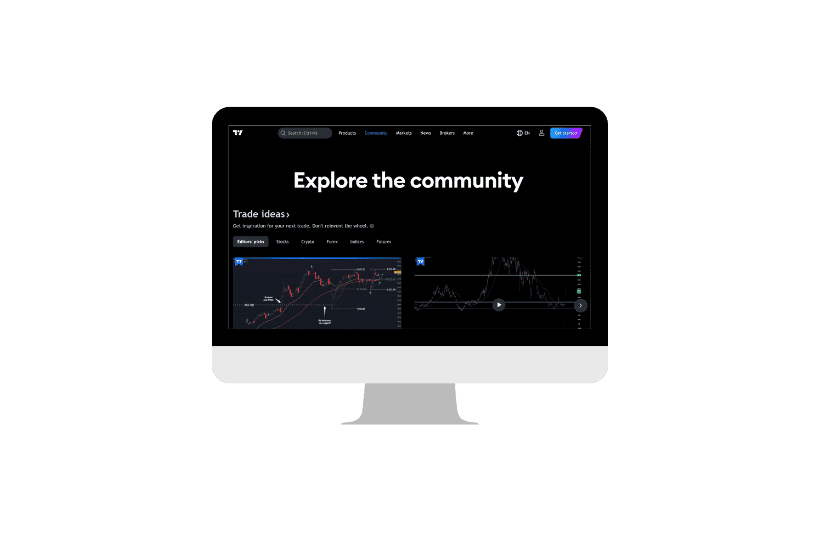Building Your Forex Support
Network

In the fast-paced world of forex trading, success often hinges on more than just market knowledge and technical skills. A crucial yet often overlooked aspect is the power of a strong support network.
This network can provide invaluable insights, emotional support, and continuous learning opportunities that can significantly enhance your trading journey. In this article, we’ll discuss ideas on how you can build your own support network.
Table of Contents:
- The Power of Community in Forex Trading
- Learning Resources: The Foundation of Your Forex Education
- The Benefits of Joining Trading Communities
- Building Your Personal Forex Support Network
- Leveraging Online Platforms for Community Building
- The Role of Brokers in Your Support Network
- Continuous Learning: The Lifeline of Forex Trading
- Navigating the Challenges of Online Communities
- The Global Nature of Forex Communities
- Technology and Forex Communities
- The Psychological Benefits of a Support Network
- Conclusion: Your Path to Forex Success
The Power of Community in Forex Trading
Forex trading can be a solitary endeavour, with traders spending hours analysing charts and executing trades. However, connecting with fellow traders can transform this experience into a collaborative and enriching one. A robust forex support network offers numerous benefits, including shared knowledge, emotional support, and access to diverse perspectives.

Learning Resources: The Foundation of Your Forex Education
Education forms the cornerstone of successful forex trading. As a trader, it's crucial to continually expand your knowledge and stay updated with market trends. Several platforms offer comprehensive educational resources for traders at all levels.
BabyPips: Your Forex University
BabyPips is renowned for its "School of Pipsology," a free, comprehensive forex trading course. It covers everything from basic terminology to advanced trading strategies, making it an excellent starting point for beginners and a valuable refresher for experienced traders.
Forex Factory: Your Market News Hub
Forex Factory is a go-to resource for many traders seeking up-to-date market news, economic calendars, and trading forums. Its user-friendly interface and real-time updates make it an indispensable tool for staying informed about market-moving events.
TradingView: Your Technical Analysis Companion
TradingView offers advanced charting tools and a platform for sharing trade ideas. With over 50 million users, it's not just a technical analysis tool but also a thriving community where traders can learn from each other's chart analyses and trading strategies.

The Benefits of Joining Trading Communities
Becoming part of a trading community can significantly accelerate your learning curve and provide ongoing support throughout your trading journey.
Guidance from Experienced Traders
One of the most valuable aspects of trading communities is access to experienced traders. These seasoned traders can offer insights into market dynamics, share proven strategies, and provide mentorship. Their guidance can help you avoid common pitfalls and develop a more nuanced understanding of the forex market.
Real-Time Market Insights
Trading communities often feature live discussions about current market trends and potential trading opportunities. This real-time information can be invaluable in making informed trading decisions. Members often share their analyses of market conditions, providing diverse perspectives that can enhance your own market understanding.
Collaborative Learning Through Trade Ideas and Chart Analysis
Many trading communities encourage members to share their trade ideas and chart analyses. This collaborative approach to learning allows you to see how other traders interpret market data and make decisions. By examining different approaches, you can refine your own trading strategy and discover new techniques.
Emotional Support and Motivation
Trading can be an emotional rollercoaster, with highs of successful trades and lows of losses. A supportive community can provide the emotional backing needed during challenging times. Sharing experiences with fellow traders who understand the unique pressures of forex trading can help maintain motivation and resilience.
Active Participation: The Key to Maximising Community Benefits
While joining a trading community is a great first step, the real value comes from active participation. Engage in discussions, ask questions, and share your own insights. The more you contribute, the more you're likely to gain from the community.
Building Your Personal Forex Support Network
Beyond online communities, consider building a personal support network. This could include:
- Family and Friends: Their encouragement and understanding, especially during your dedicated trading and learning hours, can create a favourable environment for your trading journey.
- Trading Mentor: A mentor can offer tailored advice based on your trading style and goals, helping you navigate the complexities of trading the forex market.
- Fellow Traders: Connecting with other traders, whether online or in-person, can provide peer support and opportunities for knowledge exchange.

Leveraging Online Platforms for Community Building
Several online platforms facilitate community building among forex traders:
Forex Forums
Platforms such as Forex Factory, BabyPips, and MyFXbook host active forums where traders discuss various topics, from basic concepts to advanced strategies. These forums are excellent places to ask questions, share experiences, and learn from diverse perspectives.
Social Trading Platforms
Platforms like eToro and ZuluTrade allow you to follow and copy trades of successful traders. This can be an excellent way to learn from experienced traders while potentially benefiting from their expertise.
Trading-Focused Social Media
Many traders use Twitter, LinkedIn, and specialised platforms like TradingView to share insights and connect with other traders. Following reputable traders and analysts on these platforms can provide a steady stream of valuable information and opportunities for engagement.
The Role of Brokers in Your Support Network
Your forex broker can also be a valuable part of your support network. Many brokers offer educational resources, webinars, and customer support to help you navigate the trading platform and understand market dynamics. Choose a broker that aligns with your needs and offers robust support services.
Continuous Learning: The Lifeline of Forex Trading
The forex market is dynamic, with conditions constantly evolving. Your support network should facilitate continuous learning to help you stay ahead of market trends. Look for communities and resources that regularly update their content and provide insights into emerging market patterns.
Risk Management: A Community Effort
While individual traders are ultimately responsible for their own risk management, a supportive community can provide valuable insights into effective risk management strategies. Discussions about position sizing, stop-loss placement, and overall risk exposure can help you refine your approach to risk.
Navigating the Challenges of Online Communities
While online communities offer numerous benefits, it's important to approach them with a critical mind. Not all advice is created equal, and it's crucial to verify information from multiple sources. Be wary of individuals promising guaranteed returns or pushing specific trades. A healthy scepticism combined with thorough research will serve you well in navigating online forex communities.
The Global Nature of Forex Communities
One of the unique aspects of forex trading is its global nature. Your support network can include traders from around the world, providing insights into different market sessions and regional economic factors. This global perspective can enhance your understanding of currency pair movements and international economic dynamics.
Technology and Forex Communities
Advancements in technology have revolutionised how forex communities interact. From mobile apps that allow real-time chat with fellow traders to AI-powered tools that aggregate community sentiment, technology is making it easier than ever to stay connected with your forex support network. Embrace these technological tools to enhance your community experience and trading outcomes.
The Psychological Benefits of a Support Network
Trading can be psychologically demanding, with the potential for stress and emotional decision-making. A strong support network can provide a psychological buffer, offering encouragement during tough times and helping you maintain a balanced perspective. This emotional support can be crucial in developing the mental resilience necessary for long-term trading success.
Conclusion: Your Path to Forex Success
Building a robust forex support network is not just beneficial; it's essential for long-term success in trading forex. From educational resources to emotional backing, the right connections can significantly enhance your trading experience.
By actively participating in trading communities, engaging with mentors, and utilizing the plethora of online resources available, you can create a comprehensive support network that fosters your growth as a trader.
Remember, the journey of forex trading is not just about numbers; it’s about the community and connections that can help you navigate the complexities of the market. Start building your support network today and watch your trading journey flourish!
We’ll never share your email with third-parties. Opt-out anytime.